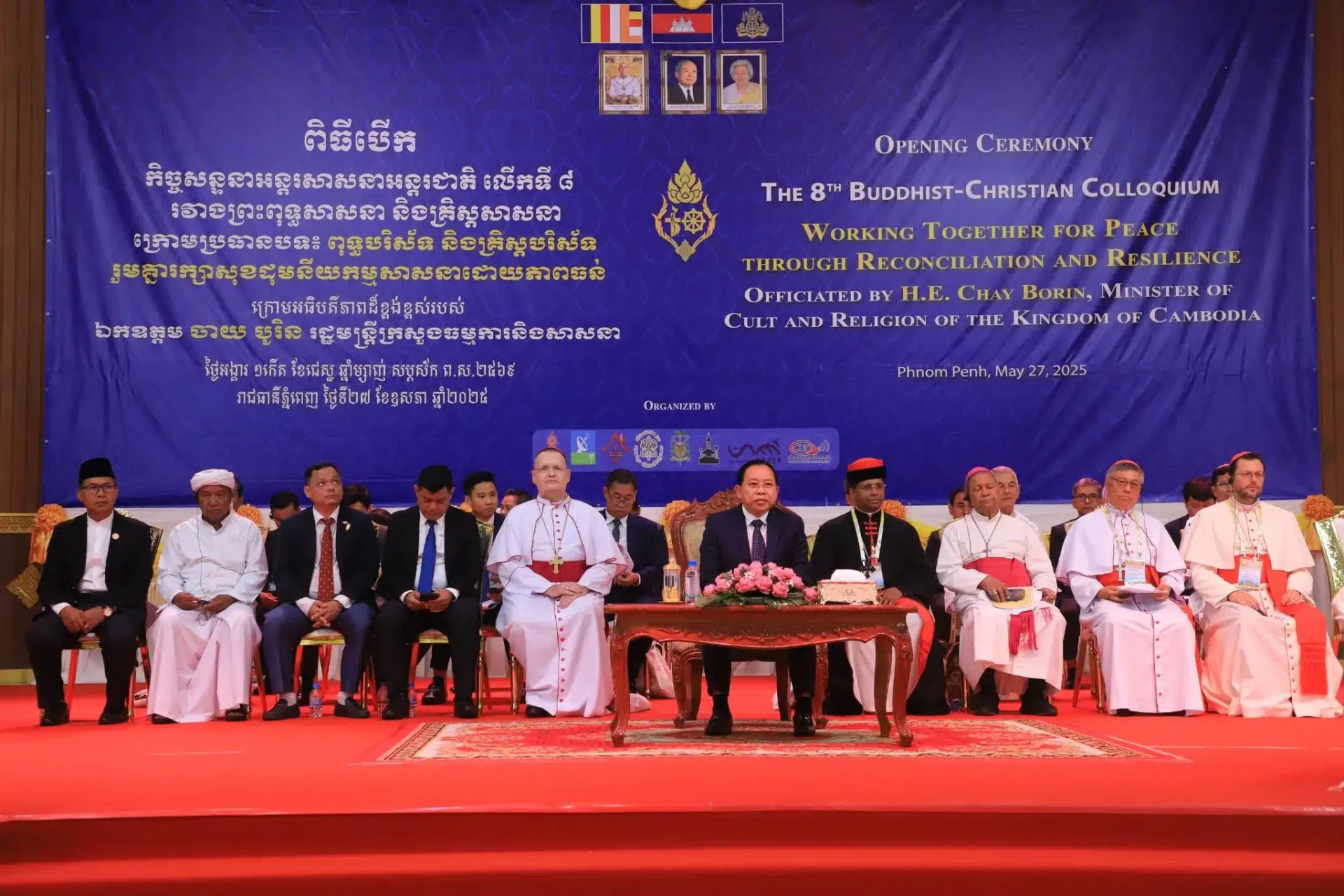Over 150 religious leaders, scholars, and peacebuilders from 16 countries gathered in Phnom Penh on May 27 for the Eighth Buddhist-Christian Colloquium, focused on advancing peace through reconciliation and resilience.
Held at the Catholic Pastoral Centre, the three-day meeting carries the theme “Buddhists and Christians Working Together for Peace through Reconciliation and Resilience.” It is jointly organized by the Dicastery for Interreligious Dialogue and the Catholic Church in Cambodia.
Cardinal George Jacob Koovakad, prefect of the Dicastery, opened the gathering by urging participants to draw on their spiritual traditions in confronting today’s crises, Diocese of Hong Kong’s Sunday Examiner reported.
“This session offers a sacred space where Buddhists and Christians gather not only as representatives of two venerable traditions, but also as fellow pilgrims, united by a common commitment for peace,” he said.
Calling the colloquium “a sign of hope” amid global division, Cardinal Koovakad stressed the need to live out the values of reconciliation and resilience. “These values are not abstract ideals,” he said, “but lived expressions of our faith capable of building lasting peace.”
Bishop Olivier Schmitthaeusler, apostolic vicar of Phnom Penh, welcomed the international delegation and thanked the Cambodian government for supporting religious harmony.
“This colloquium will be remembered in the history of our small Catholic Church in Cambodia,” he said. Citing Pope Francis, the bishop called for “a culture of dialogue as a path, common collaboration as a way of life, and mutual understanding as a method and criterion.”
Cardinal Stephen Chow of Hong Kong is among the speakers scheduled to address the gathering. His presence reflects the Hong Kong Church’s ongoing engagement in interfaith dialogue and peacebuilding in Asia.
First held in Taiwan in 1995, the Buddhist-Christian Colloquium has since convened in India, Japan, Thailand, and Italy. The 2023 session in Bangkok focused on healing humanity and the Earth through compassion.
This year’s discussions center on shared values—compassion, justice, and love—and their role in building peaceful, resilient communities.
The Cambodian Church, reestablished in 1994, has led interfaith initiatives with the country’s Buddhist majority, including education, humanitarian aid, and local peacebuilding.
The event also honors peacemakers such as the late Venerable Maha Ghosananda, known for his nonviolent Peace Walks, and Catholic Nobel laureate Tun Channareth, a landmine survivor and disarmament advocate.
The Cambodian Interreligious Council was commended for fostering cooperation among Buddhist, Christian, Muslim, and other faith communities.
In his closing remarks, Cardinal Koovakad recalled Pope Francis’ final testament, offering his sufferings “for peace in the world and for fraternity among peoples,” and quoted Pope Leo XIV’s appeal for moral clarity: “If we are in agreement, and free from ideological and political conditioning, we can be effective in saying ‘no’ to war and ‘yes’ to peace… ‘no’ to an economy that impoverishes peoples and the Earth, and ‘yes’ to integral development.”







